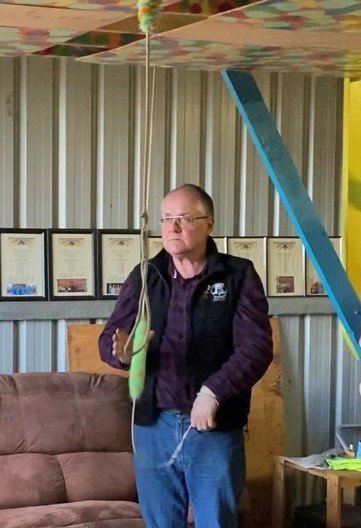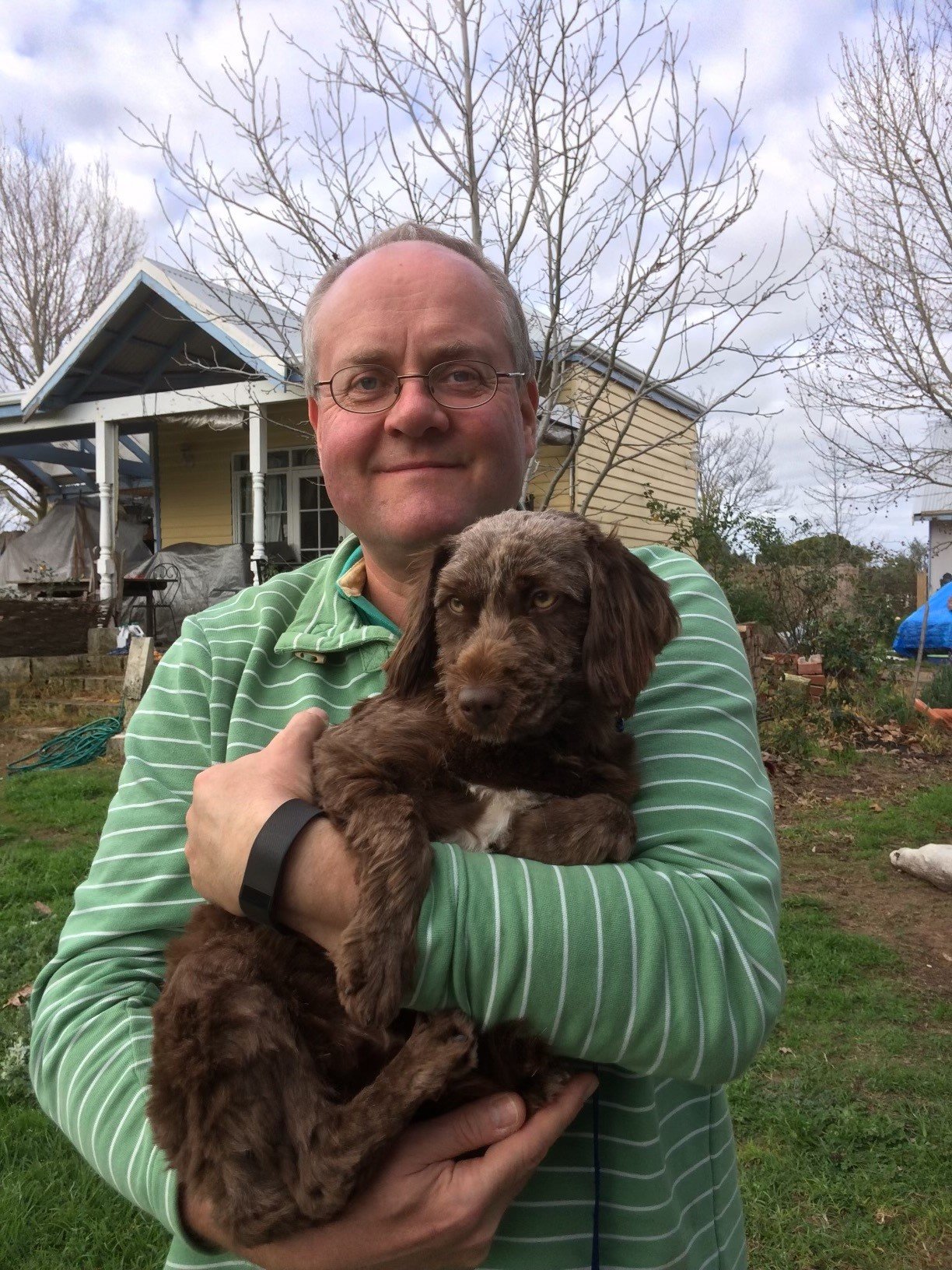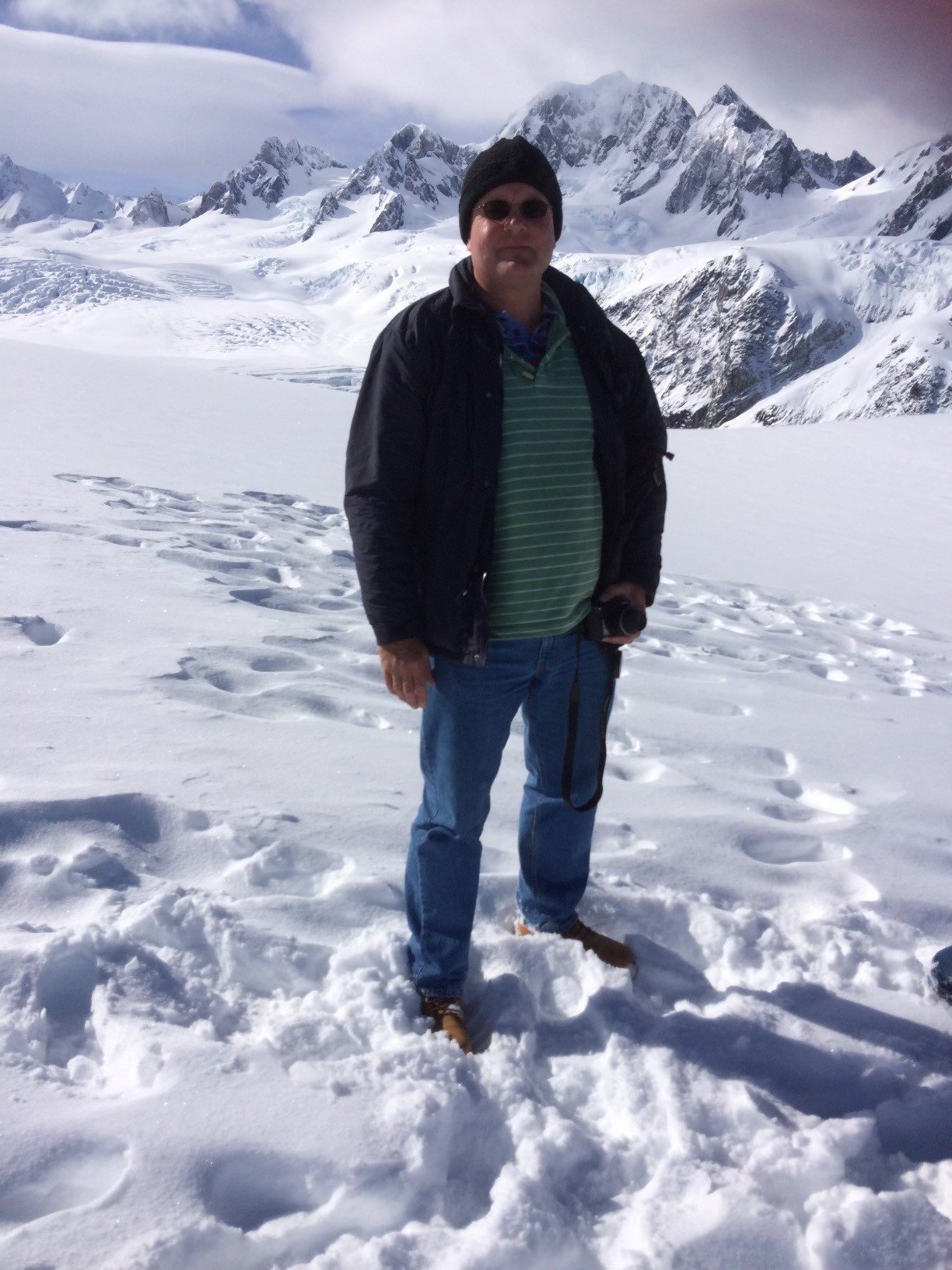Q&A with Adam Beer
NAME
Adam Beer
TITLE
Principal Geotechnical Engineer, AMC Consultants
QUALIFICATIONS
Geology (MA, PhD), Mining Geology (MSc), MAusIMM, MAIG
Everyone has a story to tell, and this month we asked Adam Beer, Principal Geotechnical Engineer, AMC Consultants, the hard questions.
What motivates you to get out of bed in the morning?
Physically, it’s usually Cara, our dog, who wakes you with a flying leap straight onto the bed if you don’t get up when she thinks you should! Mentally, that would depend on what I’m due to be doing that day – whether it be heading off to a new site to help a client, relaxing at home on our semi-rural block, or interacting with clients or colleagues on an interesting issue.
Why did you choose your career and how did you get to your current position?
Like, I suspect, quite a few people who answer these questions, it was through a series of small decisions and events in my life, rather than one big decision to follow a particular path. Each of these, though not significant in themselves, have lead me to where I am today.
Possibly the most significant decision, although it seemed almost an irrelevance at the time, was in selecting Geology as the fourth subject to study in my first year at university. What I’d initially thought of as a mere ‘filler’ rapidly became my favourite subject and then my specialisation. After that, it was a matter of refining which aspect of Geology I wanted to specialise in – a decision which ended up being made for me with the offer of a job teaching Engineering Geology at the Camborne School of Mines in Cornwall. From that the switch to Geotechnical Engineering was a relatively small step (though it did take other people to suggest it to me), and even the move to Australia seemed a logical decision given the much wider availability of jobs in Geotech here (the larger salaries helped too!).
After that it was a matter of gaining experience in different types of mining, open pit, underground, gold, nickel, iron ore, consultancy, on-site employment… until here I am, working in my fourth consultancy, doing what I love, living in a place I love, and helping people solve technical problems.
What is your favourite part of your job?
There’s a tie for this one I’m afraid – equal favourites are mentoring and helping develop skills of more junior colleagues and cracking the ‘nub’ of a problem or issue (either for a client or a colleague).
What do you find most challenging about your role?
Probably persuading mine managers with a tight budget that doing geotechnical drilling is a good idea if you want to avoid nasty (and expensive!) surprises. As I remember reading once – “you pay for a geotechnical investigation programme, whether you have one or not!”. Getting that message across can be tricky though.
What is one thing you would like to change about the mining and geotechnics/rock engineering industry?
I think that we need to try to change the way the mining industry is perceived by the public. How else are we going to be able to attract more young people into mining engineering or geotechnics in Australia? If we don’t address this, the difficulties we have in attracting enough talent into mining will only get worse.
What areas of the industry or trends do you think will become more important in coming years?
Social licence to operate – this covers several issues, all of which have to do with how the industry is perceived by the wider public. I’ll mention a few here, but I’m sure we can all think of other aspects of mining that also affect this.
Renewable power has been a feature of mining for a number of years, but in the past this was generally in the form of small-scale solar power for low-wattage applications. Automated prism monitoring systems (or indeed many kinds of automated open-pit monitoring systems) have been solar powered for many years. But trolley-assist (for haulage) and pure battery-powered vehicles are increasing in usage – this will continue. Interestingly (to me), the mining industry has solved a problem which I feel will be a barrier to the rapid uptake of fully-electric cars by adopting exchangeable batteries for electric trucks – thus avoiding lengthy charging times.
Reducing immediate environmental impact – specifically stability of mining structures where failure could impact the public in one way or another. The high-profile failures of several tailings storage facilities in recent years are a good example. Damage to indigenous heritage sites is something which has also been highlighted recently, and I think that awareness of this, and the requirement for mining companies to do more to avoid this will increase in future.
And finally, for companies operating mines near towns (or indeed any habitation), there will continue to be issues surrounding dust, noise and blasting. Although these issues have been at the forefront of public awareness for many years, I believe that better control of these issues will become even more important than it is at present.
If you could invite three people, alive or dead, to dinner – who would they be and why?
I think my first choice for a dinner guest would have to be my partner, Corinne. I don’t spend enough quality time with her, and this would be the perfect opportunity to do just that.
My second choice for a dinner guest would be Carl Sagan. I have always enjoyed his books, both factual and fiction, and I would love to hear his thoughts on the universe, and particularly the possibility of extra-terrestrial life first-hand.
My final choice would be Ian Hislop, who, for those who don’t know, is the editor of Private Eye, a UK satirical magazine. He has appeared frequently on panel shows, and I particularly enjoy his pin-sharp satirizing of political figures and events.
What moment of your life would you want to relive – and would you change anything?
I’ve often thought about this, and I’ve never been able to identify anything that I think would have made my life better if I’d done it differently. So, no, I don’t think I would change anything that I’ve done, and that means the answer to the first part is everything – or nothing – as it would all be the same.
What is the best advice you have ever been given?
To become a geotechnical engineer! It wasn’t what I set out to do, but I was looking for a new career direction after teaching for 15 years, and several people suggested it. Needless to say, I haven’t looked back since!
What advice would you give to someone considering geotechnical or rock engineering as a career?
The main advice would be to go for it! Following that, it would depend on what stage of their education they were at. As there are currently no undergraduate degree programs in geotechnical engineering (although there are geotechnical elements within some degree courses) in Australia, they would have to study civil engineering, mining engineering, or geology, and then build on that. For a graduate in one of those disciplines, I would say, get a graduate engineer position first, and worry about whether to do a master’s degree later – that way you can hopefully get your employer to pay for it! As to which branch of geotech engineering – civil or mining – I would have to say to go with whatever feels like a better fit at first – you can always swap over later (at least at the beginning of your career). Finally, if you do decide to go down the mining path, make sure you get some experience in both open pit and underground early on in your career to avoid getting pigeonholed later.




